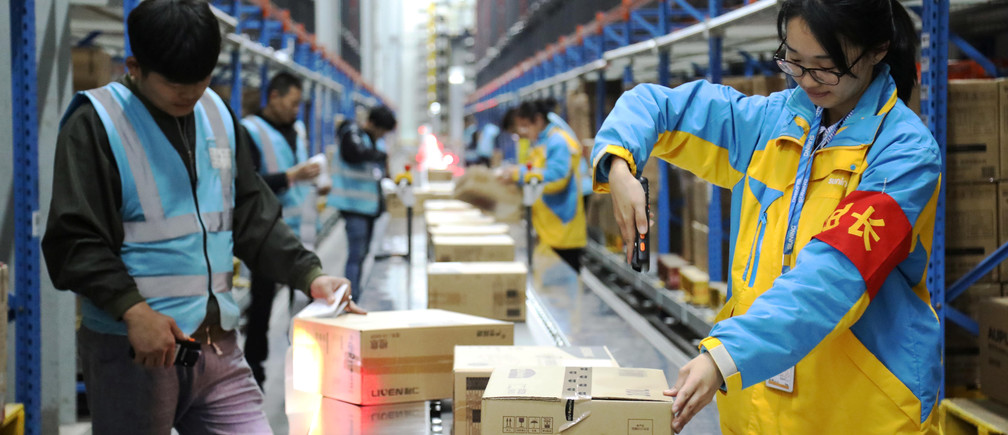The Modi government has started going after Chinese e-commerce companies for tax evasion. The companies used to ship goods ordered by people from various cities as ‘gifts’. As per Indian law, gifts up to 5,000 rupees do not attract any taxes. This helped them to evade customs duty and GST tax on the shipped goods. The Department for the Promotion of Industry and Internal Trade (DPIIT) has the post office and courier companies to monitor shipments from China, it also formally asked the tax officials to be more vigilant on Chinese goods. “Up until now, customs department was asked to undertake strict action, now even post office would be asked to scrutinise such purchases,” said a person.
The government has started a crackdown on goods brought through the Mumbai port and plans to take similar actions on other ports including Kolkata and Chennai. Many Chinese companies like Club Factory, AliExpress and Shein were taking undue advantage of tax exemption on gifts up to 5,000 rupees. “Many people were able to place orders on Chinese e-commerce sites and the goods were being delivered in India without paying IGST and customs duty which would make them a lot cheaper compared to similar products sold in India. The government has now made it mandatory for these Chinese e-commerce companies to get registered in India and enforcement action like Mumbai customs from other customs ports would ensure that such commercial transactions disguised as gifts will further come down drastically,” said SachinTaparia, Founder and Chairman, Local Circles.
Chinese companies are considered very unethical by the governments across the globe. They are involved in tax evasion, data theft and deliberate law offending. Earlier in the month of February, Modi government has imposed anti-dumping duty on 99 Chinese products to avoid the flood of cheap Chinese goods into the Indian market. The Chinese products on which duties have been imposed include chemicals and petrochemicals, fibres and yarn, machinery items, pharmaceutical, rubber, and steel items. If the domestic market of a country is hurt due to the surge in cheap imports, it reserves all the right to impose anti-dumping duties under the multilateral regime of the World Trade Organization.
The Chinese must understand that the era of free trade is almost over and huge trade deficits are no longer sustainable. If it continues to manipulate the rules to make its exports competitive and keep import tariffs high in its own country, it will soon be facing issues, it might not be prepared for. Chinese companies are fast losing across the world. Recently the US government has kept Chinese company –Huawei under secret surveillance to investigate its fraud and espionage. The company allegedly importanted data from the American government authorities to China. The companies from China have not been able to create brand value in the global market and the country has been reduced to being ‘factory of the world’ due to this kind of behavior. The global consumers do not trust Chinese companies and products due to ‘trust deficit’. Due to this, China has become a source of cheap labor and not an innovation hub. Issues like tax evasion, data theft create suspicion about Chinese companies among the consumers and the governments.
